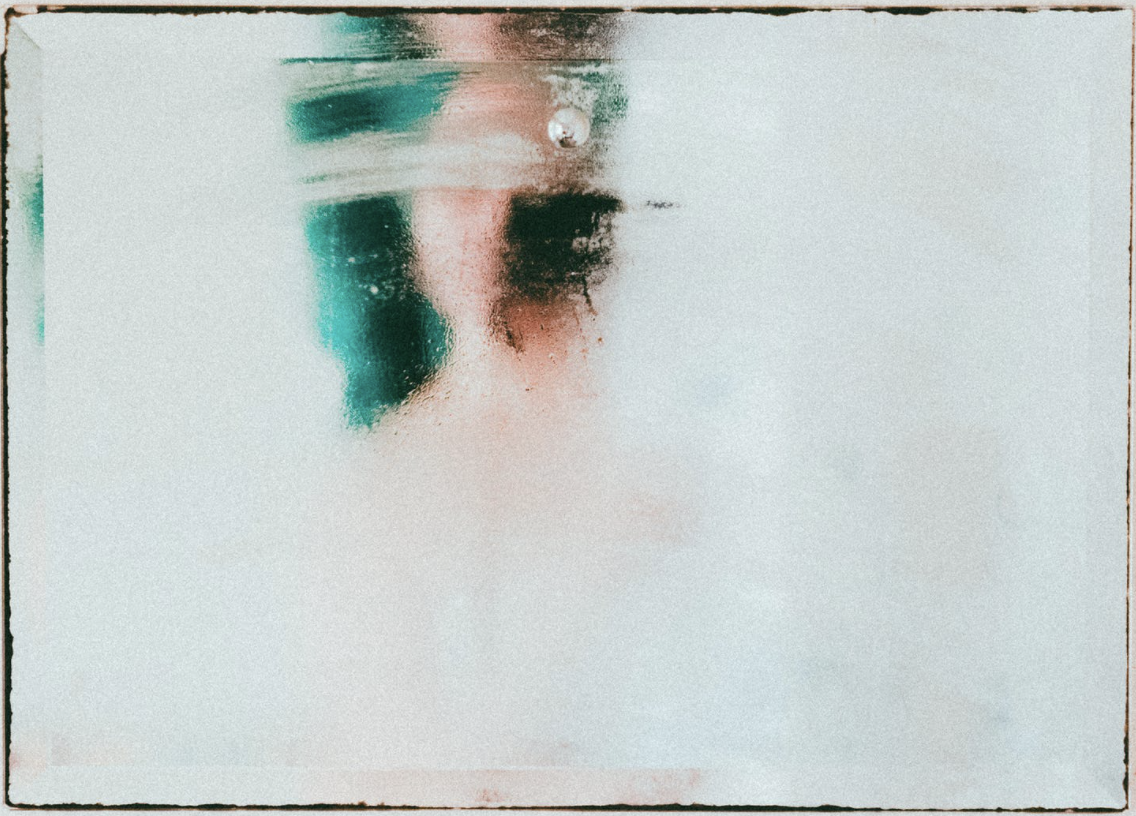Lydia’s photographs mesmerized me from the first moment. They are very direct, clear, and honest, like a direct look into your soul. This openness brings a certain rawness and vulnerability with it, which is very powerful at the same time. They touch me deeply but eventually leave a trace of hope and power for whatever there is to come.
For the following I asked Lydia if she wants to do an interview with me:
Luna Maluna Gri: Tell me a bit about yourself and your work.
Lydia Metral: I am a self-taught queer photographer born in France with a Spanish background. I am a portrait, documentary, and fashion photographer. I love taking portraits of people and especially people around me, telling their stories, and also telling my own stories through a more personal and intimate practice. My work has been about me and also about others, I got to know myself while approaching people from the queer community. I am very interested in representations of people, interpreting what their own world is about, capturing them the way they are with no artifice, and giving them a voice.
LMG: How and why did you start doing photography?
LM: I started photography in 2012 after quitting my job. I have studied economics and business management and I got tired of working in an office in a field that was so different from who I was and was not fulfilling me at all. I felt so disconnected and I got tired and decided to take a break. I traveled a little bit, took time for myself (I studied drama for 6 months), and started to take pictures seriously (I have always had a camera with me, I took my first photos when I was 13, and I would carry a disposable camera to school). Images in general have always had a powerful influence on me, I was this kind of kid who would just look at the pictures in magazines without reading the texts. Images allowed me to enhance my imagination and creativity. I started photography because I wanted to tell stories and try to capture the world with my own sensitivity and perspective.
LMG: What role does photography play for you?
LM: Photography takes a lot of time and space in my life. I am devoted to photography, I love meeting people through photography, and try to tell their story with just one image. Photography has led me to know myself better. It arrived in my life by coincidence (even though my father and grandparents were absolutely obsessed with taking family pictures and videos). At this time I was not feeling at my best and photography helped me to escape, to center my attention on something else than myself, and open up to the outside world. Take the intimate and turn it into something more universal that would speak to others. Photography is a strong and powerful weapon to express myself, it is an art that I love both watching and doing. Photography helps me to pay more attention to the outside world and also to be more receptive to my inner world. I have dedicated almost 10 years to photography and I still am very inspired by it.
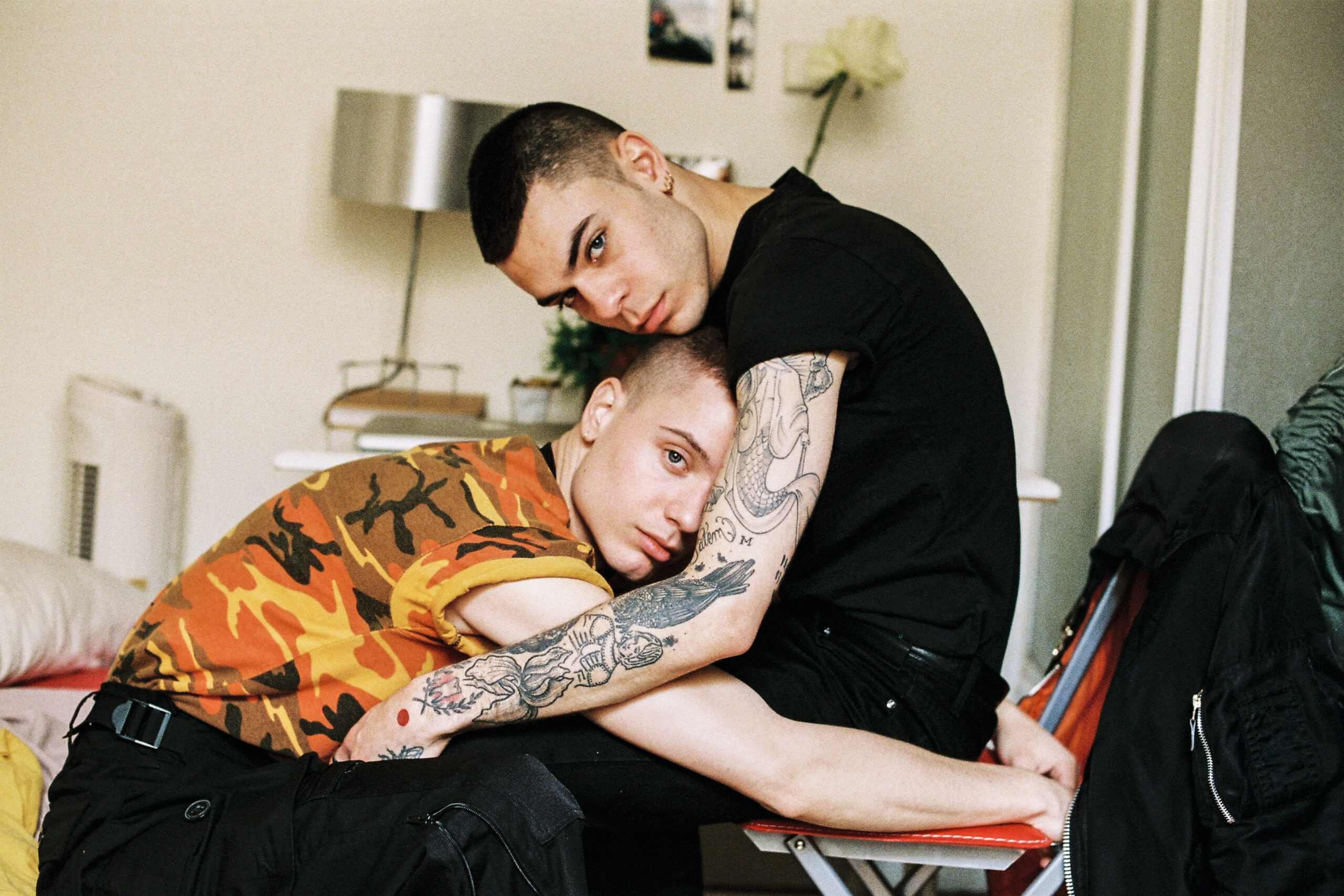

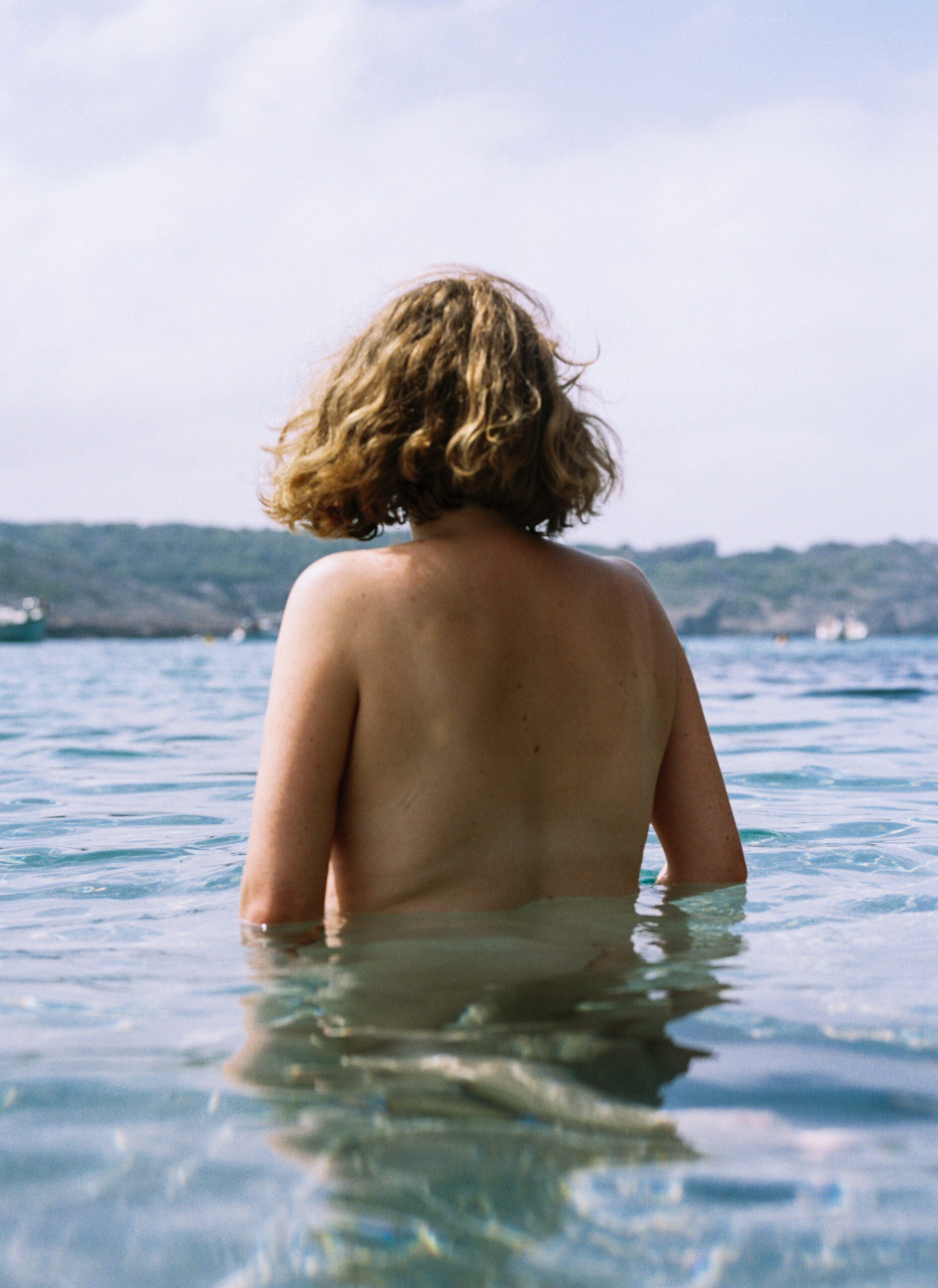

LMG: What does your creating process look like?
LM: I am someone very intuitive and I like following my intuition. I am not really a conceptual artist, I don’t really think about a concept before I take pictures, I love being guided by my emotions. Let’s say that I get very inspired by things and people and I have always new ideas that come into my mind. But things get really concrete as soon as I am in contact with people to take portraits and I just let go. I love being surprised and not having to control every aspect of my creating process. But I also love working on projects and themes and telling stories in a particular way.
LMG: What inspires you?
LM: I am inspired by everything! I love reading especially essays and autobiographies, I’ve had a lot of ideas that came after reading books. I am also inspired by music, I listen to a lot of music, and I get inspired by words and melodies that help me to visualise the stories that I would like to tell. I am also inspired by nature, which helps me to find a quiet space to think and rest but I also love watching people in the street. People in general really inspire me. As a queer woman, I didn’t have a lot of representation in LGTBQA+ icons when I was a kid, so now I really get inspired by those I identify with. I love nosing at lesbians icons. They are my heroes!
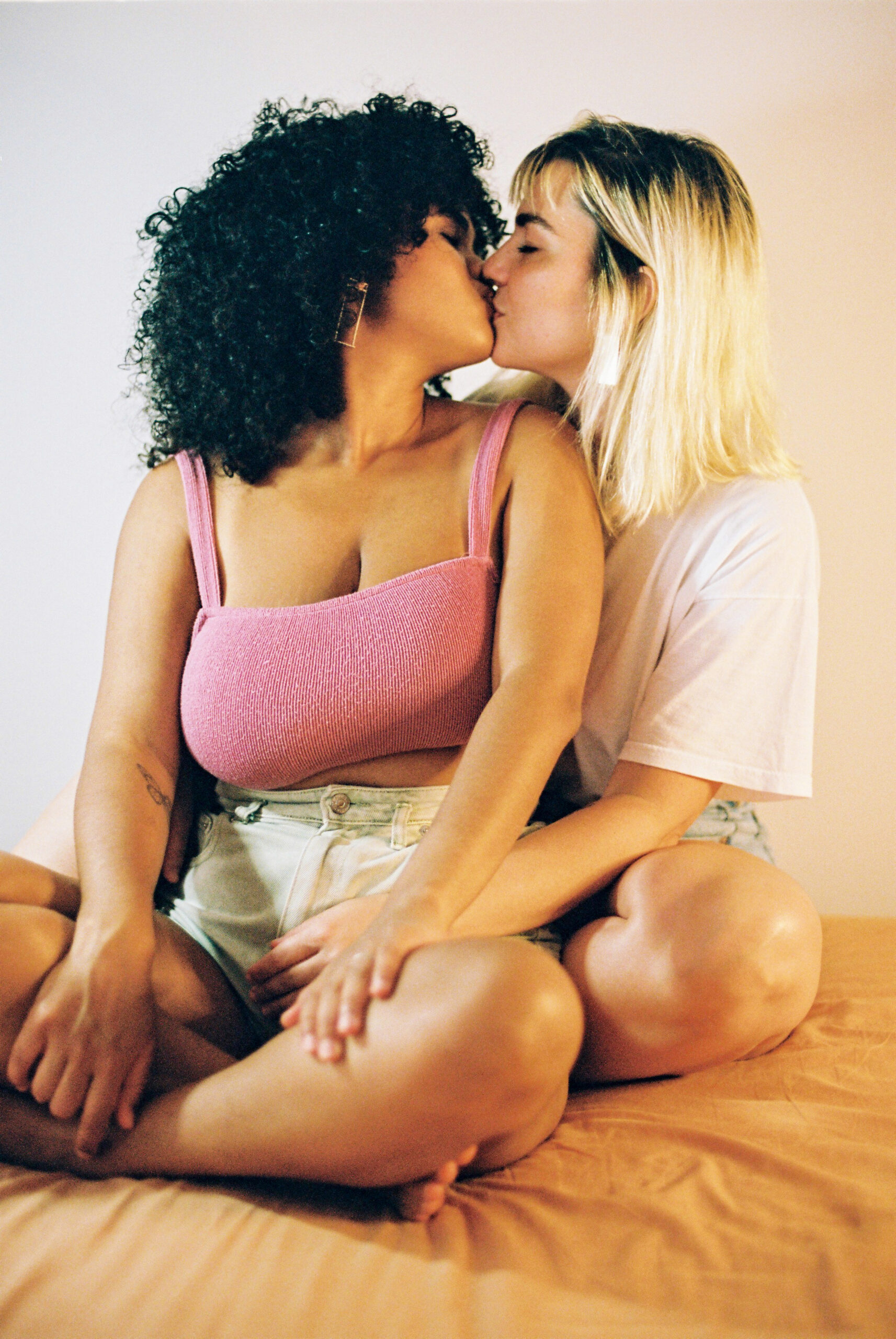

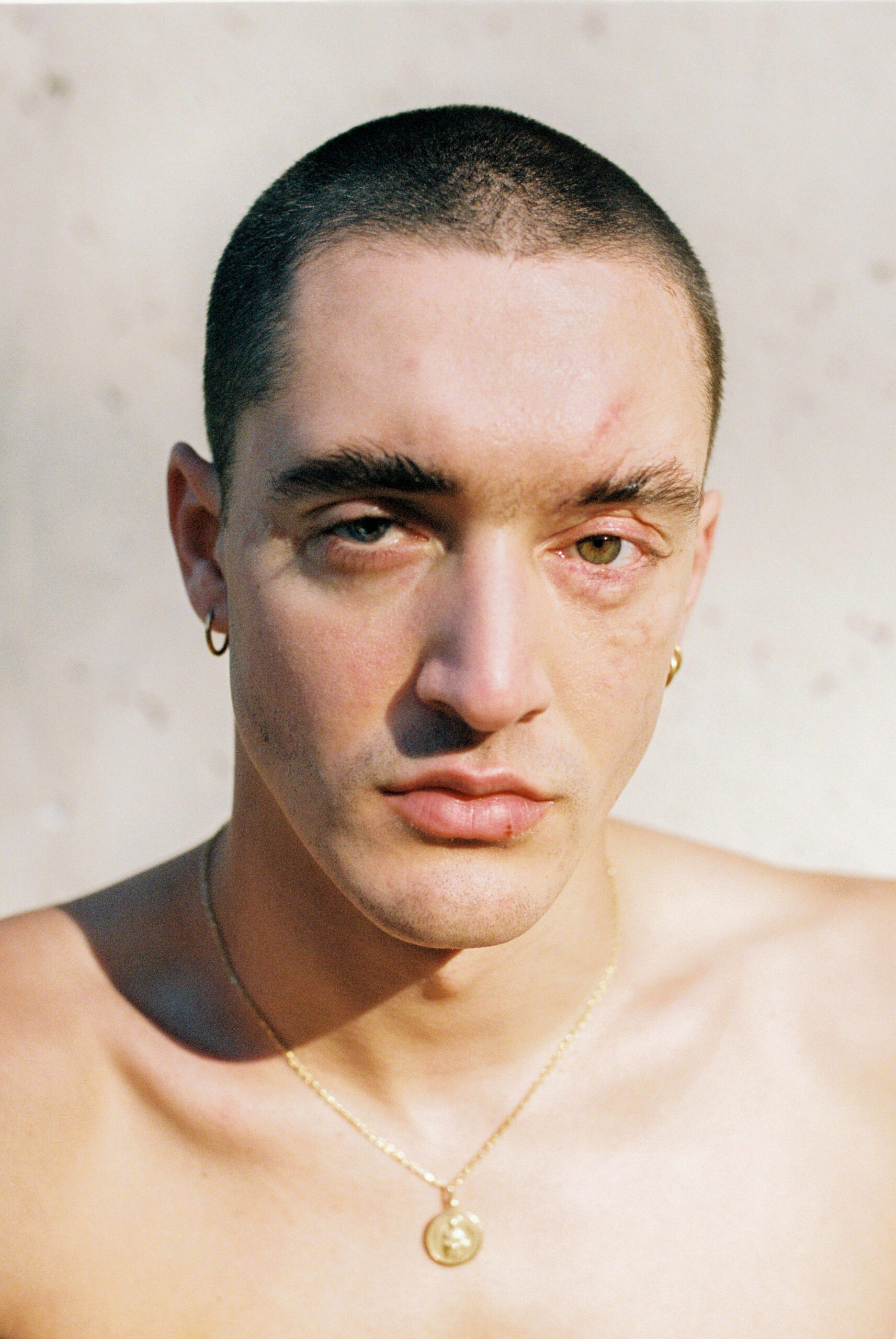

LMG: How does a normal creating day look like for you?
LM: When I plan a photoshoot I put a lot of effort into organizing it with the model, finding the right time and space takes a lot of time. Then I have to prepare my cameras, think about which camera I am going to use, choose between medium format or 34 x 46, and if I am going to shoot in color or black and white. I usually bring different cameras and film in order to adapt to the lighting conditions and decide at the moment of the session. I really like being surprised and not knowing everything about the place where I am going to take the pictures. Then the session usually lasts 2 hours or more, I spend time getting to know my model, have a little chat with them, take pictures and go home. As I am working in analog, there is no viewing of the pictures and I like to remember the session and always be in the instant moment. Then the next day I take the film to the lab and wait a few days to get the film developed and scanned! Then comes the surprise to review the photos and it creates a lot of joy and excitement in me.
LMG: What is your experience with the art world?
LM: I am not really into the art world, I am actually quite disconnected from it. The majority of my friends have nothing to do with the art world and I like keeping myself away from it. It doesn’t mean that I don’t go to exhibitions or events but I don’t want to be part of it and have to respect all its codes. I like when things are relaxed a non-conventional. Where I come from (France) the art world is very elitist and when you haven’t studied at the best art school it is difficult to get credit and stand out. What I am experiencing right now is that opportunities for me come from abroad. A lot of art actors all around the world are trusting me and give value to my work. I think that countries like the United States have more to offer in terms of art opportunities and don’t judge you for who you are or where you come from.
LMG: Is there something you want to change about the art world? If yes, what and why?
LM: First of all, as I was mentioning before, I wish that the art world was less elitist and not just opened to a certain category of privileged people. I wish that the art world would support more people coming from unprivileged worlds. I think I am very privileged myself but I had absolutely no connection to the art world, I made and I am still making my way alone without the help of anyone. My mother is a teacher and my father comes from a working-class family and made his way alone. In that sense, I think the art world is too much about connections. It’s about who you know and the connections you make. It is also a world where codes are difficult to deconstruct. People from the art world are supposedly very open-minded but when it comes to questioning their vision and own little world, they are not. People don’t want to take risks. Also, it is still a world ruled by cis men. Weirdly in photography schools, there is a majority of women studying but in the end, the ones who get more jobs are cis men. There is this French collective «La part des Femmes» that fight to promote equality within the photography field and does a lot of research about gender issues in the photography world. Last year more than 90% of images that were published in press magazines were made by cis men. So there is still a lot of work to do in order to achieve equality and diversity in the photography and art world in general.
LMG: What do you think is/are the role/-s of artists and art in our society?
LM: Artists are here to question the world we live in, to bring new perspectives to the world, new points of view. They are here to question our vision, to deconstruct established norms. They are here to bring poetry and humanity into this world. They educate us and allow us to see further than what we are usually used to seeing. Open new worlds, new ideas. Their roles are crucial in our society in order to elevate our souls and mind. Artists make the world a better place to live in.


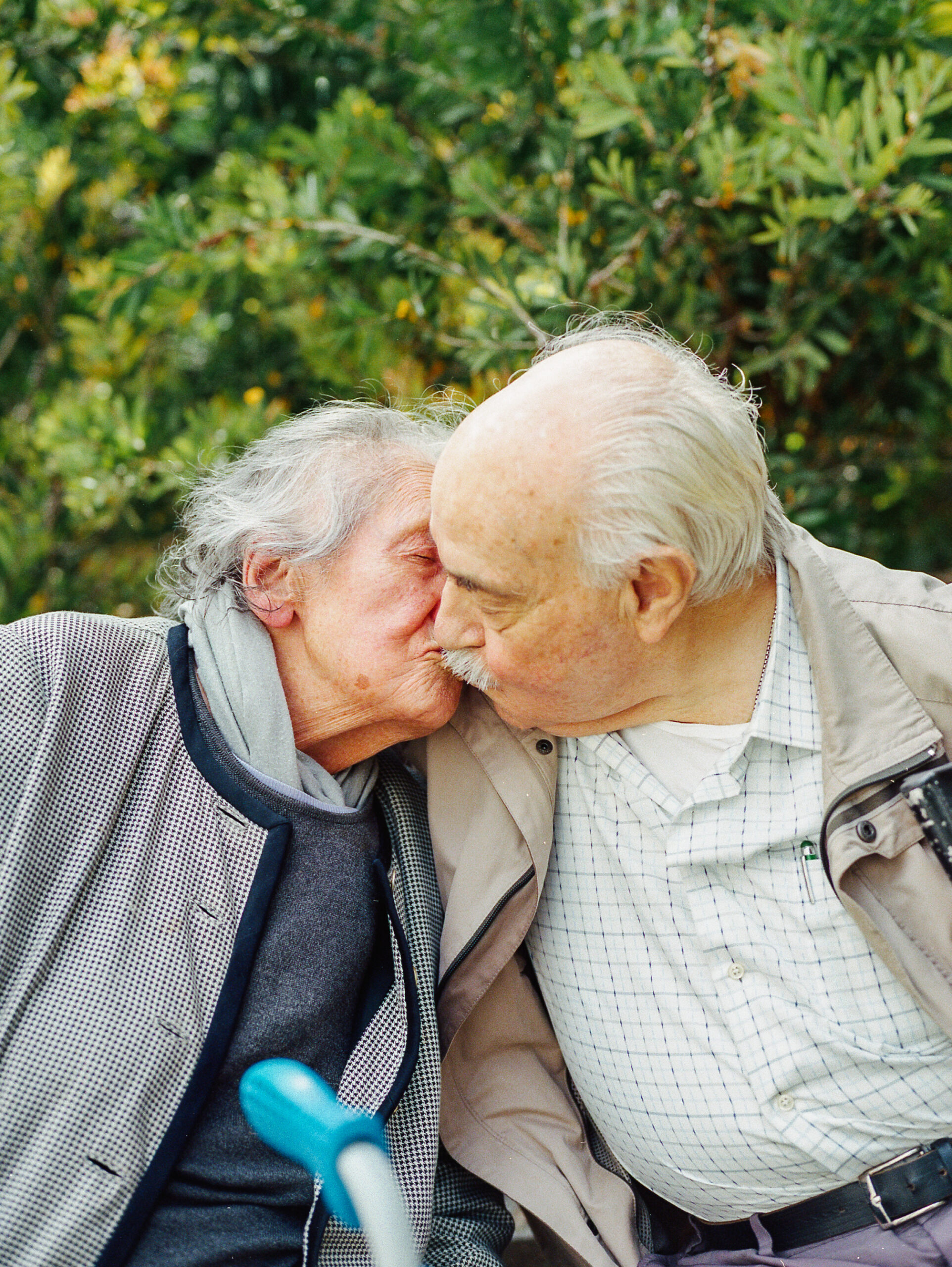

LMG: What artist/artists would you like to meet (dead or alive) and if you had one question what would you ask them?
LM: I would love to meet Marina Abramovic. I am obsessed with her and her work. I read her autobiography «Walk through walls» and it really made me want to meet her because she is actually a very funny and sarcastic woman. I would love to hang with her. And I would ask her if I can participate in one of her spiritual retreats. It seems absolutely mental and I would love to experiment with this with her even though it seems very difficult. Being in silence for days, counting rice, etc. in order to learn how to concentrate and center on your inner energy. Marina Abramovic really inspires me and I am very intrigued by her.
LMG: Is there something you want to achieve in your art life? Dreams? Future plans? Or projects you would like to do?
LM: My main goal is to have total freedom to exhibit my work. I want to experiment, to create new ways of exhibiting my work. I want to build a very interactive exhibition that would lead us into the intimate world of my models. I have a lot of ideas on how to achieve that. My dream would be to exhibit my work everywhere, to be able to share it with other people from the queer community, and keep on creating and always being inspired.
LMG: Do you think there is something you can bring to this world through your work as an artist which you couldn’t in any other field of work?
LM: Through my photography, I have the full potential to bring my own vision to the world. This vision just belongs to me and no one else. When you are working in a company you also bring your vision to the world but your efforts are actually not really rewarded and recognised. But what is important is that as an artist you have the choice to not compromise your vision. Your ideas belong to you and they are the power to guide your artistic practice. I am not saying you are totally free as an artist, and sometimes you have to compromise your work and vision to fit in (especially with social media) but you have the freedom to do it or not! It’s being so satisfying to create all my pieces of work, telling stories, sharing them with the world, getting feedback, and feeling that my work leads me somewhere and helps society to better understand certain problems. I am bringing my vision and even if sometimes I feel it’s leading nowhere, I feel extremely proud to be able to create.
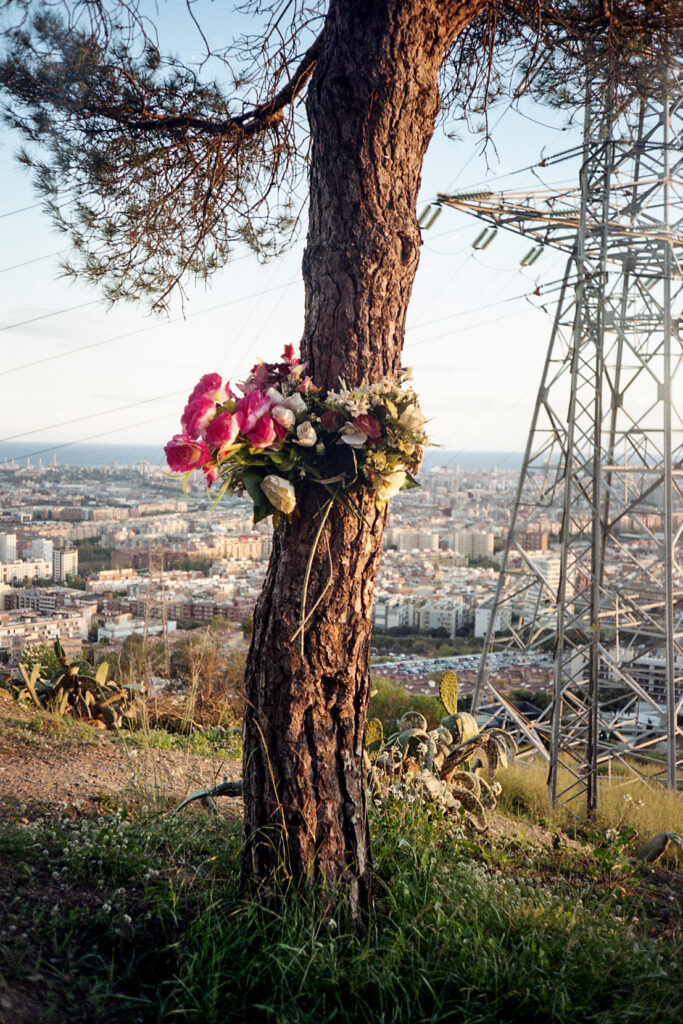
Credit to all photographs: Lydia Metral
Instagram: https://www.instagram.com/lydiametral/
Website: https://www.lydiametral.com




